Eid al-Adha 2023
Briefly about an important Muslim holiday
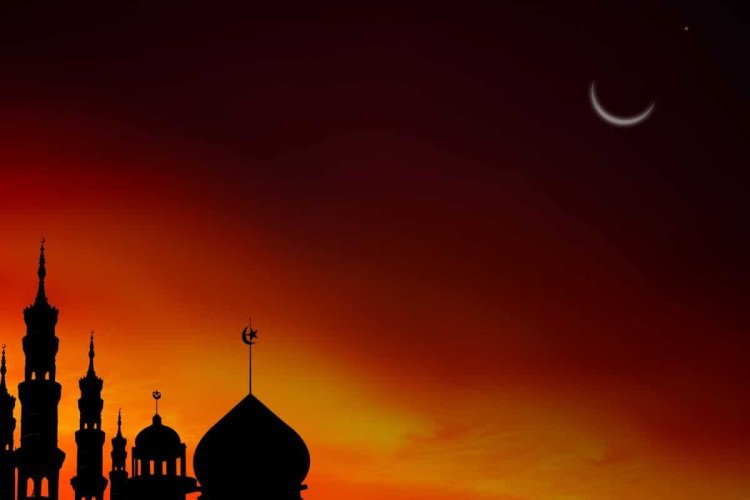
Muslims around the world on the night of Wednesday, June 28, begin to celebrate the feast of the sacrifice of Eid al-Adha in the Arab tradition and Kurban-bayram in the Turkic tradition. This wonderful holiday comes exactly 70 days after Eid al-Fitra (Uraza-bayram), which in turn marks the end of the holy month of Ramadan.
Eid al-Adha marks the end of the annual hajj, when believers from all over the world make a pilgrimage to Mecca and Medina in Saudi Arabia, to the shrines of Islam. Only Muslims can step on the Holy Mecca, entrance is strictly prohibited for gentiles. Before the celebration, pilgrims taking part in the Hajj climb Mount Arafat, and on the Day of Sacrifice they perform a symbolic rite of throwing stones at the devil and go around the Kaaba. Every Muslim who is healthy and financially able to perform the Hajj should do it at least once in his life.
About the holiday
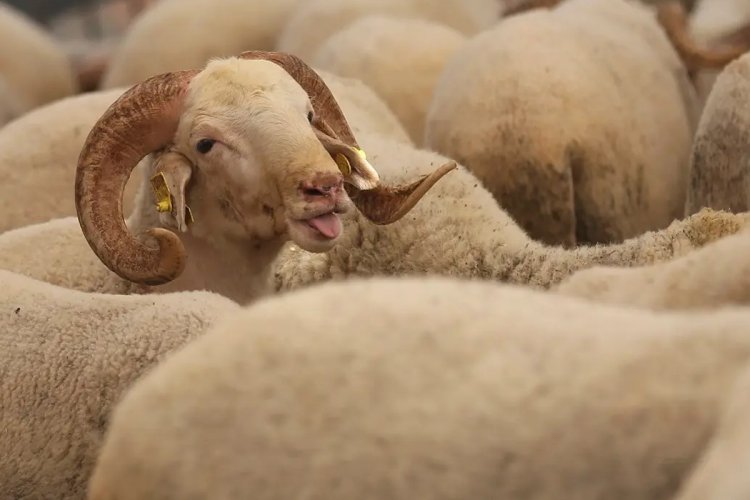
The history of this holiday is connected with the prophet Ibrahim, to whom the angel Jabrail appeared in a dream and ordered to sacrifice his eldest son Ismail. Ibrahim, tormented, agreed to fulfill the order of Allah. However, Allah had mercy on Ibrahim and replaced the human sacrifice with a sacrificial sheep. Thus, Ibrahim successfully passed the test of faith sent by the Lord. Eid al-Adha is celebrated every year to commemorate this event, and for many Muslims it is the main holiday of the year, symbolizing the mercy of Allah.
During Eid al-Adha, Muslims exchange gifts and share food with relatives, friends and those in need. The meat obtained as a result of the sacrifice is usually divided into three parts: one for the family, the second for relatives, and the third for those who need help. In addition, Muslims make donations to charitable organizations.
How is it celebrated in Mecca?
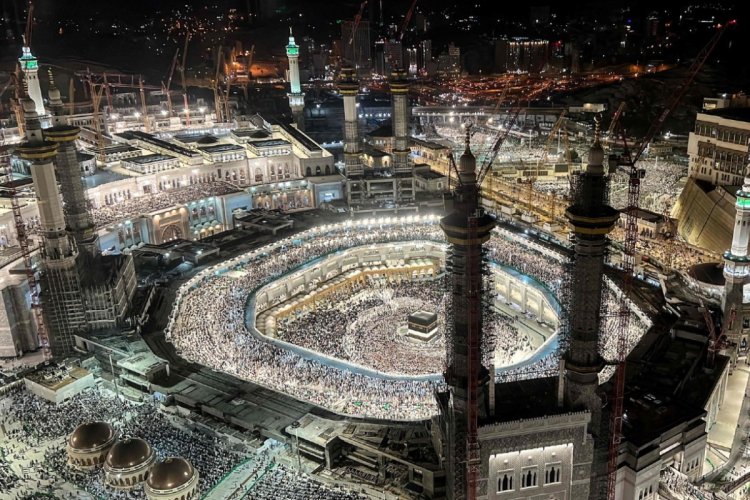
In 2023, Saudi Arabia lifted all coronavirus restrictions, so more than 2.5 million pilgrims will arrive in Mecca for the festival, according to media reports.
On the day the Hajj begins, pilgrims dress in ihram - special white clothes without seams, and arrive in Mecca, where they perform the obligatory tawaf and sai rituals. They then proceed to the Mina Valley, where they stay overnight. On the second day of the Hajj, worshipers head to Mount Arafat for meditation and repentance, and then to the Muzdalifah valley, where they stay overnight. On the third day of the Hajj, pilgrims go to the Mina Valley to perform the ritual of beating the devil on the Jamarat bridge, throwing stones at three pillars symbolizing the devil. From the fourth to the sixth day of the Hajj, pilgrims again perform tawaf and sai, and may stay in the Mina Valley for several nights. The Hajj ends with a three-day celebration of Eid al-Adha - the feast of sacrifice.
During the three-day celebrations of Eid al-Adha, most businesses and shops are closed, but this is a great time to stroll through the small villages and watch the celebration of this ancient tradition.
How is it celebrated at home?
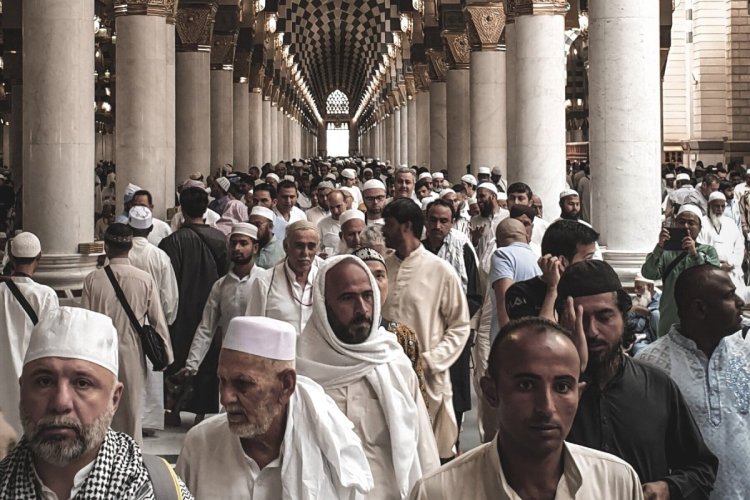
The vast majority of Muslims celebrate Eid al-Adha at home. Believers spend a lot of time and money preparing for the holiday. In addition to purchasing a sacrificial animal, it is necessary to purchase new clothes for each family member, prepare a lavish feast, and prepare to exchange gifts with relatives and friends.
For example, in the United Arab Emirates, a few days or even weeks before the start of the holiday, you can notice the excitement in shopping centers and markets. Airports and other transport companies are working in an enhanced mode to ensure the transportation of citizens to their homeland to celebrate the holiday in the homes of elders.
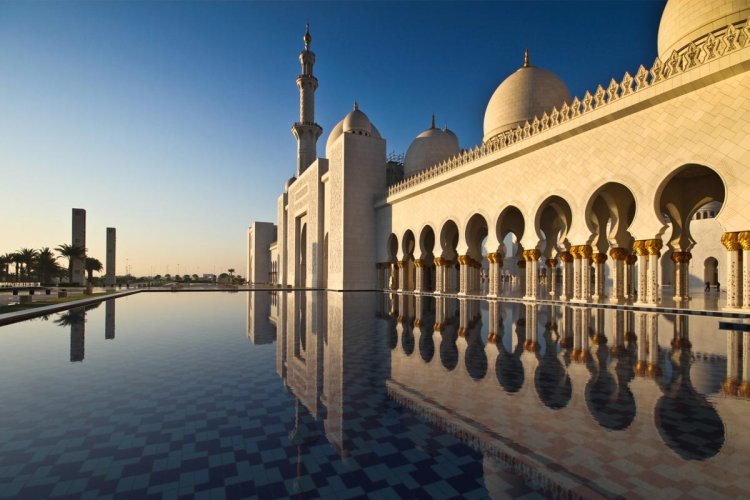
Before the holiday, Muslims perform traditional rites, including the recitation of prayers all night without sleep before the holiday. With the onset of morning, every Muslim comes to the mosque for morning prayers, dressed in new or clean clothes and smeared with incense. In open areas, such as squares and parks, you can see many believers gathered for a common prayer. Women pray separately from men. Tourists are advised to wear modest, closed clothing and behave respectfully. After the prayer, the imam gives a sermon (khutbah) in which he talks about the meaning of the holiday and its history. After the official part, Muslims perform a sacrifice.
In the Emirates, sheep, goats, cows or camels can be sacrificed. Mostly, locals sacrifice goats and camels. The rite of slaughter can be carried out both at home and in specially designated places. Also, there are certain restrictions and rules regarding the choice of animal: small cattle can be sacrificed on behalf of one person or family, while heavy beasts (cow, camel) are divided into a group of up to seven people. The sacrifice is counted only if the animal was healthy and reached a certain age, for example, a goat should be at least 1 year old, a cow – 2 years old, and a camel – not less than 5 years old.
Rite of Sacrifice
The master or an experienced member of the family performs the ceremony - before that, they blindfold the animal and turn their head towards Mecca, saying a prayer. The meat of the victim is divided into three parts only after all the blood has flowed out of the carcass. After the slaughter, one third of the meat is kept for oneself, and the rest is distributed to the poor and used to treat guests. Currently, some Muslims replace the rite by depositing a sum of money equivalent to the cost of an animal, which is allowed by the canons of Islam and is not condemned.
Modern Interpretation
The holiday ends with a traditional feast, which is often held in the circle of close people. Usually Muslims spend the first day of the holiday in a narrow family circle, and the following days are celebrated in the company of relatives and friends. Many prefer not to stay at home, but have picnics or meet at restaurants and entertainment centers.
Travel to Muslim countries during sacred holidays, feel the oriental hospitality and touch the traditions of Islam! Book your flight and hotel with fedafone booking.
Don't forget to activate mobile data bundles from fedafone for the UAE, Qatar, Saudi Arabia and other countries in the region!
Eid Mubarak!




